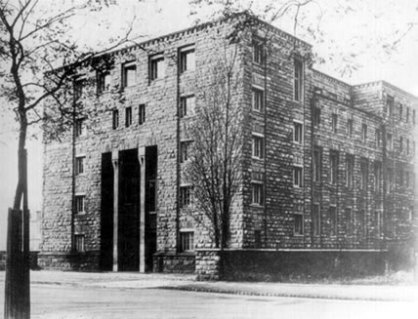Critical Theory, was developed by a group of intellectuals who are often referred to as the Frankfurt School. The Frankfurt School, or Das Institut fur Sozialforschung (The Institute for Social Research), was founded in the early 1920s in Frankfurt, Germany and persisted there until the early 1930s, at which time, due to Nazi threat, it relocated to, first, Geneva, and then New York City. The purpose of Critical Theory was to provide a new way of understanding emerging market models and their effects on social domination (Giroux, 2009). Furthermore, it signaled a break from rational positivism. As Giroux explains, “the concept of critical theory refers to the nature of SELF-CONSCIOUS CRITIQUE and to the need to develop a discourse of social transformation and emancipation that does not cling dogmatically to its own doctrinal assumptions” (p. 27). As such, the Frankfurt School was concerned with promoting the primacy of subjective truth over the universal neutrality of experience advocated by blind empiricism. Giroux explains that the “Frankfurt School took as one of its central values a commitment to penetrate the world of objective appearances to expose the underlying social relationships they often conceal” (p. 27). That is, that one of the chief characteristics of the Frankfurt School of thought is the de-emphasis of positivistic rationality and an emphasis on self-critical examinations of the dialectical relationship between human experience and social realities.
Giroux argues that the Frankfurt School’s interest in self-criticism and ultimately their strong beliefs in the necessity of theoretical primacy over empiricism were heavily influenced by “the rise of Fascism and Nazism, on the one hand, and…the failure of orthodox Marxism, on the other” (p. 29).
Giroux points out that “to the Frankfurt School, the outcome of positive rationality and its technocratic view of science represented a threat to the notion of subjectivity and critical thinking” or, as Nietzche put it, “[T]he victory of the scientific method over science” (p. 32). Further, such an epistemology reinforces the prevailing social and scientific hegemony and so the status quo, specifically within culture.
Giroux explains that “[b]y insisting on the primacy of theoretical knowledge in the realm of empirical investigations, the Frankfurt School also wanted to highlight the limits of positivist notion of experience” (p.35). The challenges leveled by the Frankfurt School, namely the necessity of self-criticism and the primacy of subjective critical thought, at the epistemological status quo of positivism provide insights, such as social capital, metacognition, and experience based education to the realm of radical pedagogy. To this end Brookfield (2005) points out that “[t]he critical theory tradition draws on Marxist scholarship to illuminate the ways in which people accept as normal a world characterized by massive inequities and the systemic exploitation of the many by the few” (p. 2).
References:
Brookfield, S. D. (2005). The Power of Critical Theory Liberating Adult Learning and Teaching. San Francisco, CA: Jossey-Bass.
Giroux, H.A. (2009). Critical theory and educational practice. In A. Darder, M.P. Baltodano, & R. D. Torres (Eds.), The Critical Pedagogy Reader (pp. 27-51) New York, NY: Routledge. ical
ical